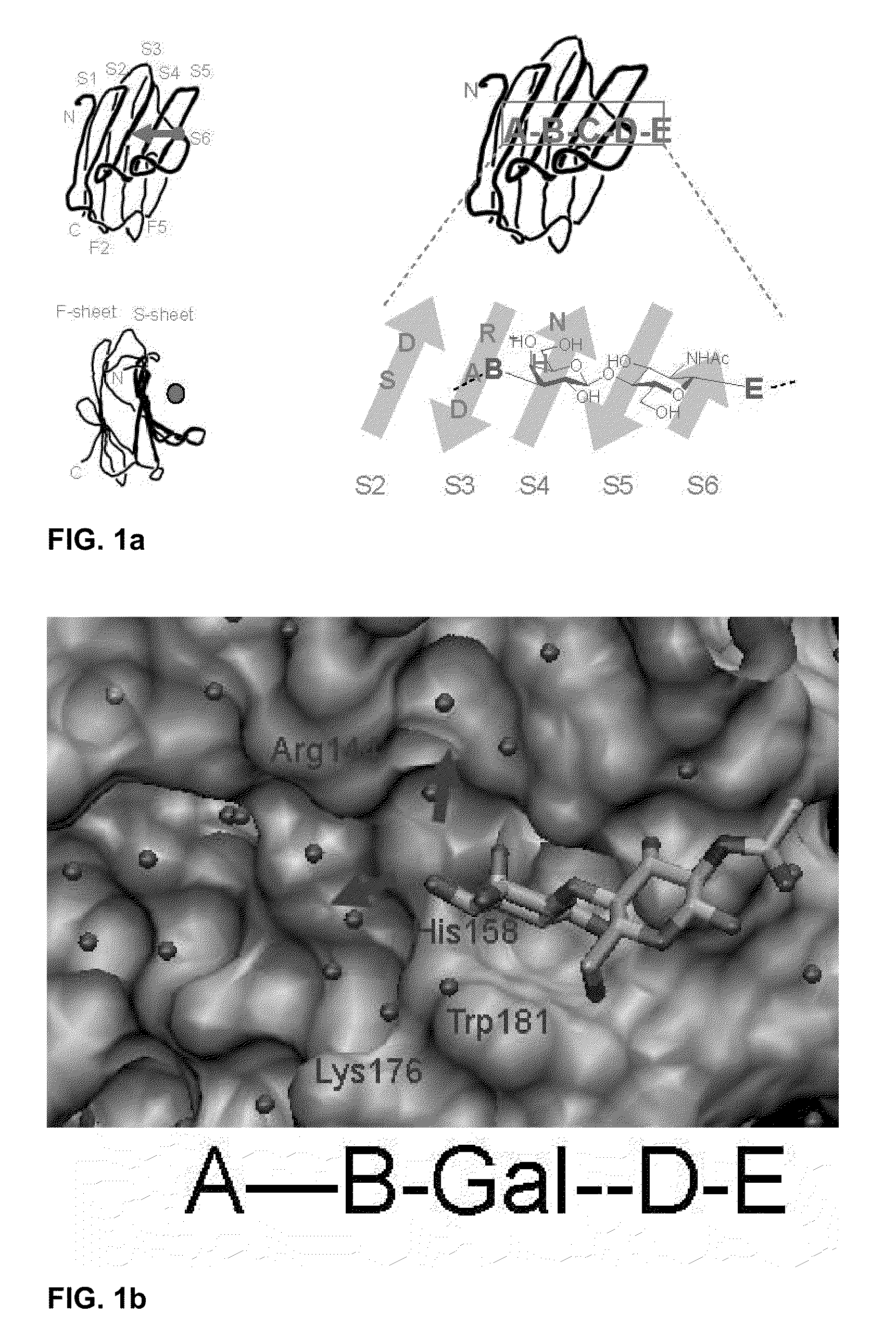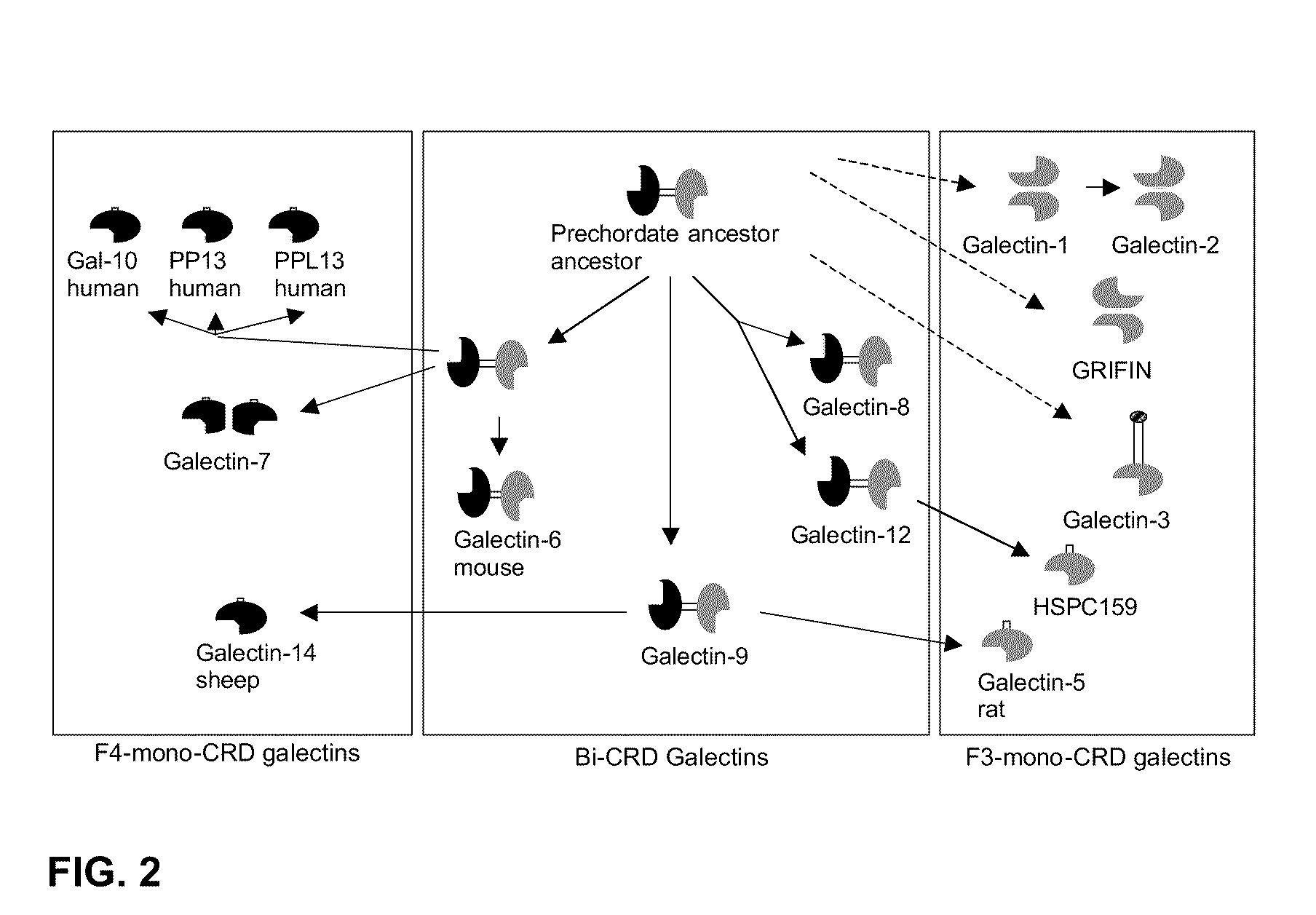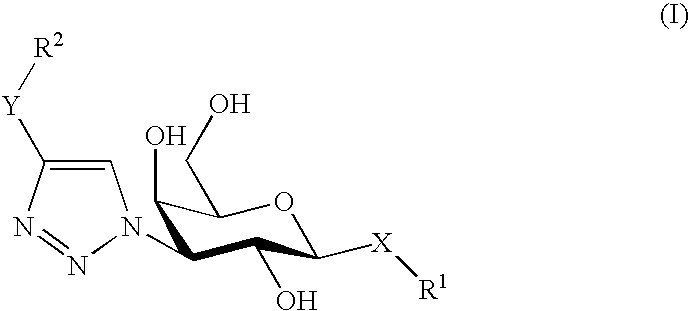3-triazolyl-galactoside inhibitors of galectins
a galectin and triazolylgalactoside technology, applied in the field of compound, can solve the problems of lack of specificity or lack of scientific focus, inducing tissue damage response in the wrong place and time, and premature priming in the blood stream, so as to improve the affinity, improve the effect of stacking interaction, and vary the efficiency
- Summary
- Abstract
- Description
- Claims
- Application Information
AI Technical Summary
Benefits of technology
Problems solved by technology
Method used
Image
Examples
Embodiment Construction
[0045]According to one aspect of the invention, in the above-mentioned formula, X is S or O and Y is a phenyl or a carbonyl group.
[0046]In the present disclosure, the term “alkyl group” is meant to comprise from 1 to 12 carbon atoms. Said alkyl group may be straight- or branched-chain. Said alkyl group may also form a cycle comprising from 3 to 12 carbon atoms.
[0047]In the present disclosure, the term “alkenyl group” is meant to comprise from 2 to 12 carbon atoms. Said alkenyl group comprises at least one double bond.
[0048]In the present disclosure the term “aryl group” is meant to comprise from 4 to 18 carbon atoms. Said aryl group may be a phenyl group or a naphthyl group.
[0049]In the present disclosure, the term “alkoxy group” is meant to comprise from 1 to 12 carbon atoms. Said alkoxy group may be a methoxy group or an ethoxy group.
[0050]In the present disclosure, the term “alkylamino group” is meant to comprise from 1 to 12 carbon atoms.
[0051]In the present disclosure, the term...
PUM
| Property | Measurement | Unit |
|---|---|---|
| weight % | aaaaa | aaaaa |
| temperature | aaaaa | aaaaa |
| weight % | aaaaa | aaaaa |
Abstract
Description
Claims
Application Information
 Login to View More
Login to View More - R&D
- Intellectual Property
- Life Sciences
- Materials
- Tech Scout
- Unparalleled Data Quality
- Higher Quality Content
- 60% Fewer Hallucinations
Browse by: Latest US Patents, China's latest patents, Technical Efficacy Thesaurus, Application Domain, Technology Topic, Popular Technical Reports.
© 2025 PatSnap. All rights reserved.Legal|Privacy policy|Modern Slavery Act Transparency Statement|Sitemap|About US| Contact US: help@patsnap.com



